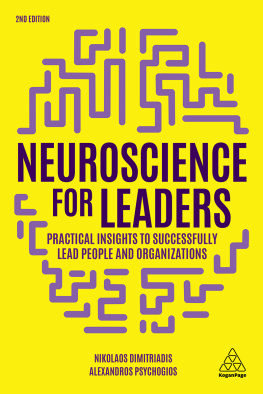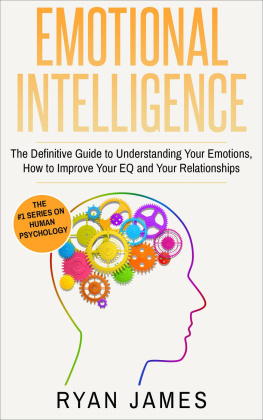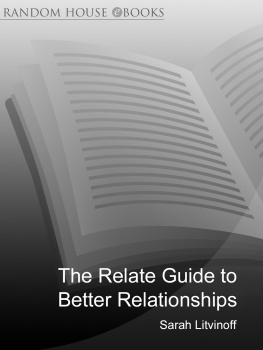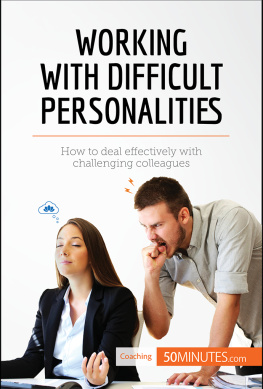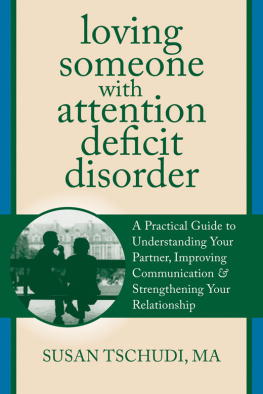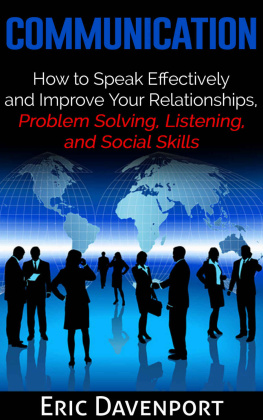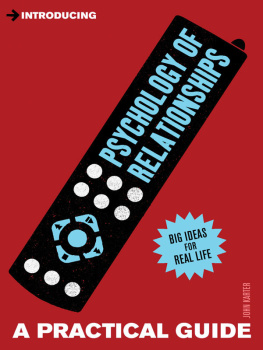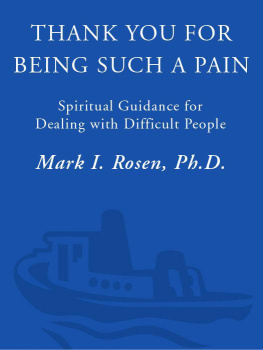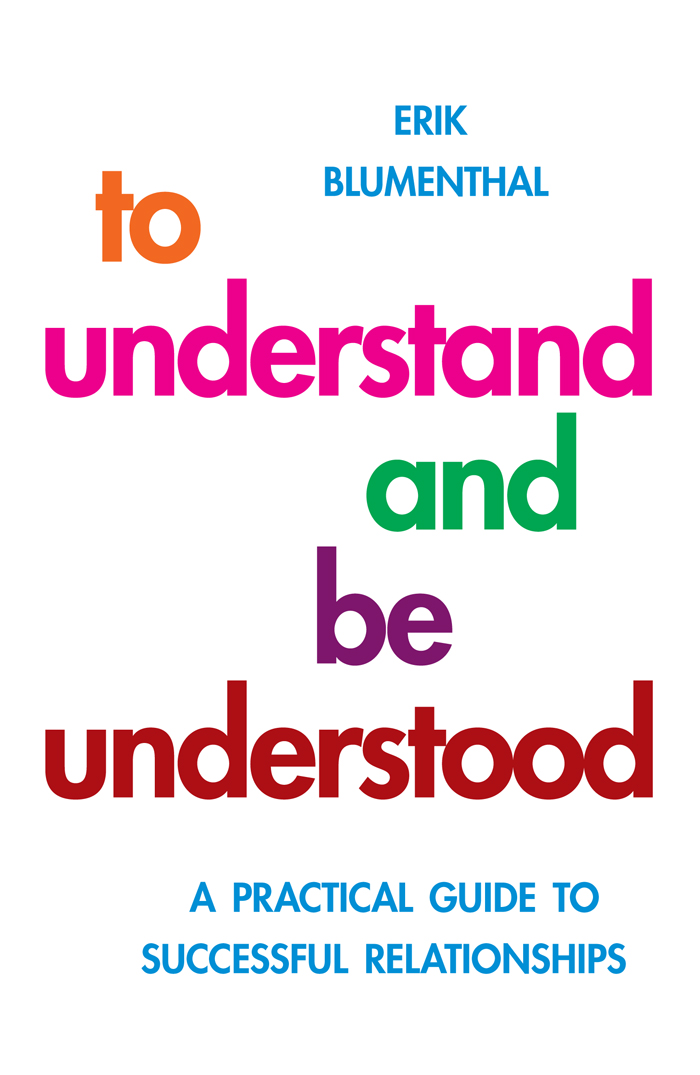To Understand and Be Understood
Erik Blumenthal, Dip. Psych. (19142004), was an internationally renowned psychotherapist and analyst. He was a lecturer at the Alfred Adler Institute in Zurich, President of the Swiss Society for Individual Psychology, and Director of the International Committee for Adlerian Summer Schools and Institutes. He wrote a number of books on child-rearing, self-education, marriage, and old age. He was married with six children and nine grandchildren.
To Understand and Be Understood
A Practical Guide to Successful Relationships
Erik Blumenthal

A Oneworld Book
First published in Great Britain by Oneworld Publications 1987
Reprinted 1987, 1988, 1990, 1997
First published in this revised edition, 2009
This ebook edition published in 2013
Copyright Erik Blumenthal, 1987, 2009
Copyright this translation Oneworld Publications, 1987, 2009
Originally published in German by Rex-Verlag in 1977 as
Verstehen und verstanden werden
All rights reserved
Copyright under Berne Convention
A CIP record for this title is available
from the British Library
ISBN 9781851686681
eISBN 9781780744704
Translated by Nancy Benvenga
Typeset by by Jayvee, Trivandrum, India
Cover design by www.fatfacedesign.com
Oneworld Publications
10 Bloomsbury Road
London WC1B 3SR
England
www.oneworld-publications.com
Stay up to date with the latest books,
special offers, and exclusive content from
Oneworld with our monthly newsletter
Sign up on our website
www.oneworld-publications.com
This book is dedicated to all people who have recognized the senselessness of strife, struggle, and force; who are tired of conflict, confrontation, and aggression; who wish to learn to live in peace with their partners, their families, the different generations, with friends, colleagues, acquaintances, relatives, and neighbors, with those of other nations, other races, and other religions, and not least with themselves.
Contents
Introduction
M ore and more people are beginning to realize that all is not well with the way in which we relate to each other. They are experiencing difficulties in their family relationships, in their closest friendships, and with their wider circle of acquaintances, both in their private and working lives.
Apart from a few mentally or emotionally disturbed people, scarcely a human being exists who lives a completely solitary life. Even in large cities, people who live alone have some contact with others on a regular basis, while most of us have extensive experience with social relationships.
Why then does this experience serve us so poorly? Why has the social historian Arnold Toynbee been able to say that while we have developed dramatically in intellectual, scientific, and technical spheres, our relationships with other people are much what they were five thousand years ago? People loved and hated in ancient Babylon much as they do today.
Although it appears that human beings have developed lopsidedly in this way, at the same time we have also developed sciences that can assist us in our social relationships: psychology, sociology, politics, and economics. And how does religion come into the picture, that important resource that, in all its various forms, includes among its concerns many rules and principles for social conduct? Every major religion teaches about the love of God and love for our fellow human, and love is undoubtedly a fundamental ingredient in successful relationships.
What prevents us from putting this knowledge into practice? To me, there seems to be only one answer: our prejudices, and we can only overcome these through a new understanding an understanding of ourselves and of others.
This book is concerned with understanding each other. I have discussed means of gaining greater understanding of ourselves in my previous book, The Way to Inner Freedom. Both books are based on my experience with thousands of people, both in groups, seminars, courses, and lectures, and in my psychotherapy practice. The examples in this book have come from these encounters, many of which have, for obvious reasons, been modified. They are experiences not of people who are mentally ill, but of everyday experiences we can all identify with.
The chapter headings present those principles I consider to be most important in learning to interrelate effectively.
I am indebted to Alfred Adlers teachings on Individual Psychology, my teacher Dr Alexander Mller, and my friend Professor Dr Rudolf Dreikurs. I thank my beloved wife for her knowledge, love, and faith, and my son Stefan for the many valuable suggestions he made while reading the manuscript.
1
Decide more consciously
Everyone thinks of changing humanity, and no one ever thinks of changing himself.
Leo Tolstoy
It is Mrs Martins birthday. Her sister and mother have come to visit. Mr Martin, probably for no other reason than to get the conversation going, innocently tells them that he ordered his wifes present four weeks ago. It still hasnt arrived, he says, so he had nothing to give her this morning.
Typical! is the mothers reaction, and she asks him whether he had at least given her a card to her such things are extremely important. Mr Martin grew up in a family in which the routine giving of cards was not so important, and when he says that he hasnt, the mother cannot restrain herself from letting everyone know that she would have expected nothing else from a man like that. Within a very short space of time the atmosphere has become so dreadful that the mother leaves early, completely spoiling Mrs Martins birthday, and leaving her sad and tearful.
And so it goes. A forceful mother has apparently been able to manipulate her grown childs emotional state. How is it possible for a person to be so deeply influenced by another?
Everyone who gets angry, frustrated, or unhappy generally knows exactly whose fault it is. We are accustomed to blaming other people for our negative feelings and our emotional states.
Most people are unaware of the possibility of any other reaction, but there is an alternative, which follows from the realization that no one in the world can make me angry, because my anger is my anger and nobody elses. Only I can invoke my anger, and I can choose whether or not to express it. When somebody else gets angry, they too though often subconsciously have chosen to get angry. We are all decision-making human beings who decide on some level to do everything we do. Each thought, each feeling, each desire, each expectation, and each expression is the result of a decision, for the most part made subconsciously.
Most people do not want to accept this realization, because they do not want to take the responsibility for their bad feelings. It seems so much more rewarding to blame others. This way we always have a wonderful excuse for our bad temper and moodiness: Its your fault!
In our example, everyone thinks the mother is to blame. Yet Mrs Martin, the birthday girl, could have decided not to react angrily to her mothers aggression. She could also have decided to feel sorry for her mother and help her. At the same time, it would have been important to cast a loving glance at her husband, or even to have given him a hug. That would have shown that she did not mind the delay in receiving the present. If the two of them, husband and wife, had shown their love and unanimity in this way, the mothers aggression would merely have been a ripple in the ocean, and she in turn would have learned how well the children loved and understood each other, so that such small mishaps were of no importance.


